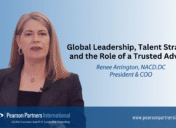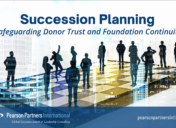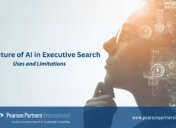The Global Economy and Its Effect on Our Business Climate
The global economic roller coaster we’re currently experiencing is the result of a complex web of factors including government regulations, the value of various currencies, international debt crises, oil and gas supply and demand, and countless other factors. With so many moving parts in play, American companies have little solid ground on which to base decisions that will affect the future of their business.
Pearson Partners’ Q3 2011 Spotlight Series event highlighted the current state of the national and global economy, and the impact of economic uncertainty on American businesses.
Our esteemed panel members included:
- John D. Skjervem, Executive Vice President, Northern Trust
- Anas F. Alhajji, Ph.D., Chief Economist, Natural Gas Partners
- Scott H. Colvert, Investment Partner, Trinity Hunt Partners
State of the Union
The Fed has tried a few different tactics to boost the American economy, but so far, nothing has achieved its intended effect. By lowering interest rates, the Fed aimed to recapitalize the banking system in order to spur lending, mortgage refinancing, and spending. When that didn’t work, the Fed tried something else: quantitative easing, which was the Fed’s purchase of $600 billion dollars’ worth of treasury—and government—guaranteed debt, with a goal of expanding credit. While this move was good for Wall Street, it didn’t help most consumers. As inflation increased, the value of the dollar declined, banks hoarded cash, and businesses chose not to seek credit to fund expansion due to uncertainty regarding the future of regulatory and tax policy.
Professionals’ forecasts of economic growth have been way off. We started the year with a Wall Street consensus forecast of 3.3 percent GDP growth and a Fed prediction of 3.9 percent growth, yet we saw essentially no growth in the first quarter and anemic 1 percent growth in the second quarter. How could the “experts” be so wrong? Because the econometric models used in forecasting GDP growth have never contemplated a scenario in which consumers continued to leverage three years into a recovery. With unemployment still up, the housing market continues to suffer, despite the lowest mortgage rates in the post-war era. In short, without jobs, people are just not buying.
Globally, China has accomplished its money supply target objectives, and seems to have been successful in bringing its economy down softly without a real disruption. In Greece, the experts are predicting a 100 percent probability of default on Greek debt, as public debt is over 90 percent and is suffocating the private sector and the ability to grow the economy. And in Europe, the ongoing debt crisis has created economic uncertainty, but has boosted the value of the dollar.
Although the increase in oil prices has not yet hit the economy very hard, that could change as government expenditures decline and taxes and interest rates increase.
Businesses Wait and See…
On the positive side, exports, transportation, and capital goods are strong; commercial lending is growing; and a strong rebound in auto production is on the horizon. Corporate profits have hit a new high, significantly above the levels reached prior to the recession. Yet employment rates remain stagnant because companies are using that money to pay down their debt, rather than to fund expansion.
Business owners are holding on to their companies rather than selling, due to the volatility of the stock market. They can yield higher returns from their own businesses than they would earn by investing a big cash payout in the market.
The government’s limited changes to jobs policy have left businesses unsure about the future, so although profits are up, many companies are sitting on their cash and waiting to see what happens with taxes, regulations, and healthcare before they make long-term investments in capital and people. Businesses are postponing hiring, choosing instead to simply work their existing employees harder. Because the job market is tough, their employees are happy to oblige.
In addition to our retained executive search services, Pearson Partners International provides executive coaching services to help our clients develop and keep their most valuable employees, as well as assessment services to help companies ensure they have the right talent and management structure in place, now and in the future.
Next Spotlight Breakfast Series Event
Mark your calendars now for our next Spotlight Breakfast Series event scheduled for Dec. 6, 2011. Look for details and invitations in November.
Related Posts
- ← Oil & Gas Executive Outlook 2015
- DFW HR Roundtable – Healthcare Cost: The Power of Prevention on Corporate Profits →














